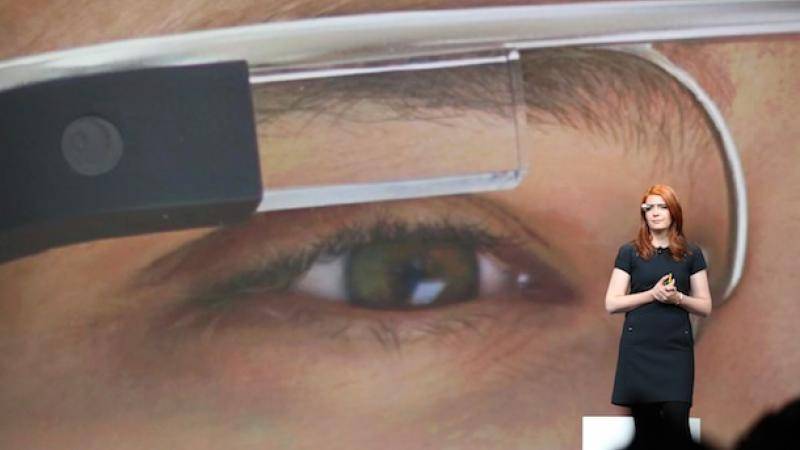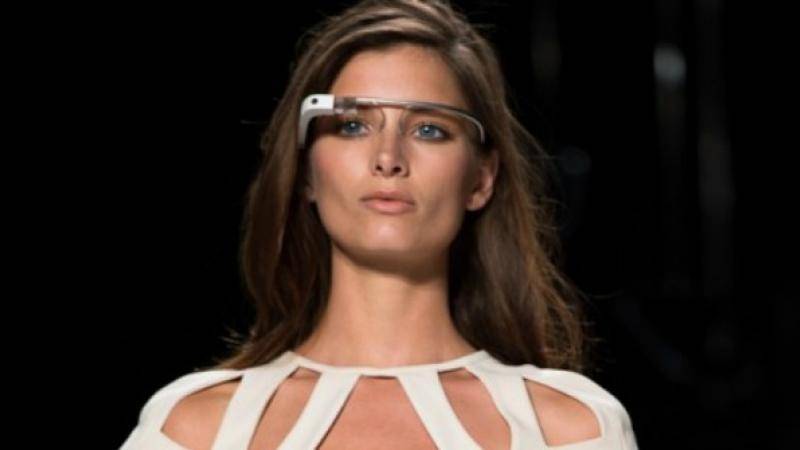
On January 28th and 29th, Google is holding a shadowy event for Google Glass developers in San Francisco. There’s another on February 1st and 2nd in New York.
It’s called a Glass Foundry.
Google will be introducing developers to the Google Mirror API, which will let them start building software that interacts with Google’s futuristic augmented-reality glasses. We know from members-only Google+ posts from the organizers that developers will get to play with Project Glass units during the workshop.

According to the document we’ve got, developers “may” even be getting a test pair to take away. And you won’t believe how intense the rules are.
ReadWrite got a look at the non-disclosure agreement — or NDA — for developers attending the first Glass Foundry, and it is a serious piece of work. Google doesn’t want anything to leak out about the state of this project.
Google has been pretty ostentatious about its goals for its augmented-reality glasses. Remember the skydiving Hangout stunt? And Google co-founder Sergey Brin was spotted last week riding the subway in New York wearing Project Glass. But now that the first outside people who promised to fork over $1,500 at Google I/O last summer are getting their hands on the things, mum is definitely the word.
Here are some highlights from the NDA on the Project Glass events. We’ve reordered and paraphrased them in order to protect our sources from any devious wording tricks Google might use to identify them. We’ve retained the original title and headers for relevant sections, and we’ve quoted one amazing phrase verbatim.

GLASS DEVICE USAGE AGREEMENT FOR GLASS FOUNDRY DEVELOPERS
1. General
- Google “may” give attendees access to “Glass and other Google products,” but it’s only for testing purposes and to solicit feedback.
- Only U.S. residents are allowed.
- The Google Glass devices attendees “may” receive can be used only in the U.S.
- No one other than the attendee can wear or use Glass without Google’s permission.
- Either Google or the participant can terminate participation freely.
- Everything is covered under Google’s overall terms of service and privacy policy, as well as any additional terms for individual products.
- Google warns participants not to use Glass while driving, biking, using sharp objects, or playing sports, and to use caution while walking and crossing streets. If they have any concern about the safety of using Glass, Google asks participants to stop using them and return them immediately.
- Glass has both Wi-Fi and Bluetooth transmitters/receivers, but since it hasn’t been FCC authorized, they must remain in the hands of authorized testers.
- Google will collect feedback from users, including location and usage data, survey responses, and recordings of voice or images taken during in-person interviews or studies. It will all be associated with participants’ names and retained by Google.
- Photos or videos taken of Glass devices or at Glass Foundry events, including (but not limited to) images of the participants wearing Glass, are Google’s confidential information, and participants can’t copy, store, or share them without Google’s written consent.
- Participants are not allowed to use their own Google accounts with Glass. They’re getting developer accounts to which Google has full access, which will be deleted after the agreement is over.
- Photos taken wearing Glass will all be added to the Instant Upload album of developers’ test Google+ accounts, so Google will see them all immediately, as well as their location data.
2. Ownership and Intellectual Property Rights
- Google owns everything, basically. “You waive any moral rights you have and agree not to exercise them.” (The term “moral rights” is lawyer-speak for a very specific set of copyright restrictions.)
- Google can only use participants’ photos and videos externally with their consent, except photos, audio, and video of or by the participant while using Glass or at the Foundry event. Google can use that internally or externally as it pleases.
- Google “may” provide participants with copies of their photos and videos, but they can use them externally only with Google’s consent.
- Software developed by participants is governed by separate terms.
3. Confidentiality
- Participants cannot talk to the media or post publicly about Glass without Google’s written consent.
- All information provided by Google to participants, as well as their feedback, is Google’s confidential information. If participants are legally required to disclose any information, they must tell Google immediately.
4. Term and Termination
- The agreement goes into effect when signed, and participants have to notify Google in writing to terminate it. Google can suspend or terminate participation at any time.
- Sections 2 through 8 still apply after the agreement is terminated.
- Participants have to return Glass devices and confidential info to Google immediately after the agreement is terminated.
- Google will delete the developer’s account information after termination but keep all the photos, videos, logs, and usage and location data.
- If participants breach the terms of the agreement, Google can blacklist them forever from developer programs.
Miscellaneous Bits At The End
- Google is liable for warranty claims in relation to this program only up to $100.
- Google is indemnified against anything participants do in violation of the agreement.
- Google’s failure to enforce any provision of the agreement does not constitute a waiver of it.
Lead photo by Eliot Weisberg.

















